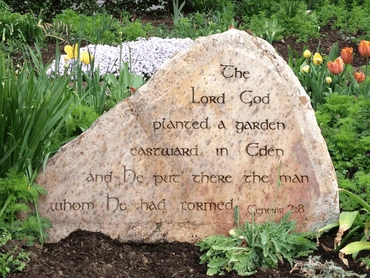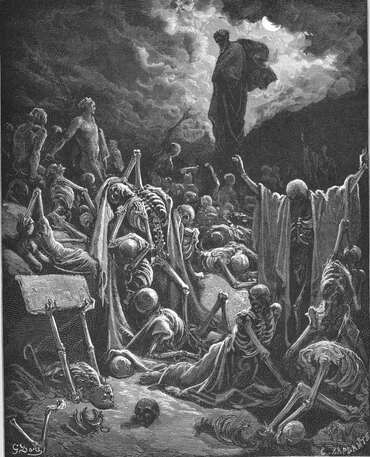Explanation of Genesis 2:17
Napsal(a) Brian David

There is, for everyone, a crossroads when it comes to spiritual things, a basic decision to be made. Are you going to believe in the Lord and in spiritual reality? Or are you only going to believe what you can see, touch, feel and otherwise "know" from your own mind? The Writings say those who choose the latter course are closing themselves off from the truth, because by definition spiritual reality cannot be seen, touched, felt or otherwise "known" through purely human means. That's what it means to eat "of the tree of the knowledge of good and evil," and it leads to spiritual death – which is being cut off from the goodness and truth the Lord wishes to bestow on us.
The people of the Most Ancient Church were in a state of love to the Lord, and had been invited to gather all the wisdom and knowledge flowing from that love – the fruit of all the other trees. But they had to accept the Lord as the source, had to accept that He existed, had to accept that He was infinite and beyond their finite understanding. To think otherwise – to think that through their own minds they could explain the Lord – would be to put themselves above him, and lead them into evil.
It's worth noting that this was not a call for people to shut down their minds. The fruit of the other trees represents an incredible bounty of exploration, learning and wonderment. And we're not called on to shut down our minds today; the Lord gave us our intellectual faculties for a reason. To let the Lord in, though, we have to accept the unprove-able idea that He is love itself and reality itself, and see all other knowledge in that light.
(Odkazy: Arcana Coelestia 126-132, 127, 128-134, 129, 0130)
Bones

Bones are strong and supportive, providing a framework for our bodies and making motion and action possible. They are also the least "alive" part of our bodies, with much of their structure made up of a mineral matrix. As such, they represent a strong, supportive, functional but innately nearly dead part of our spiritual makeup: the "proprium."
The proprium is the part of us that feels life as our own, that perceives our loves and our thoughts as originating within ourselves. If we simply follow the proprium without looking to the Lord, it will lead us to a hellish state, in which we believe ourselves to be all-powerful and deny the existence of the Lord altogether.
Bones, on their own, will go dry, brittle and completely dead. If, however, we acknowledge the Lord and follow him, that's like putting flesh on the bones and being alive. In that case the bones – strong, supportive, protective and as alive as they can be – represent the proprium in relation to intellect, the part of us that perceives our thoughts as our own but turns them toward the Lord.






